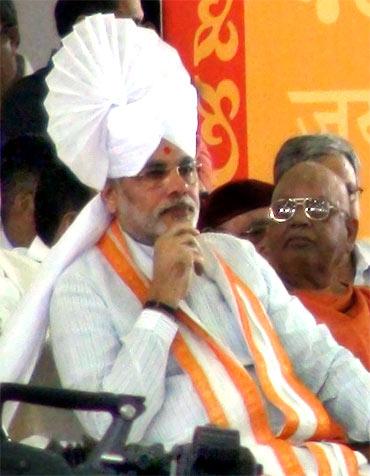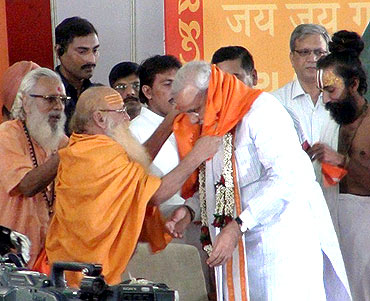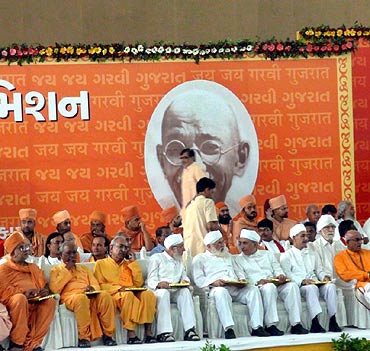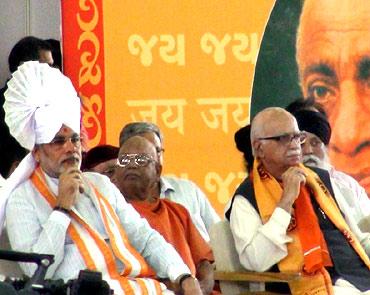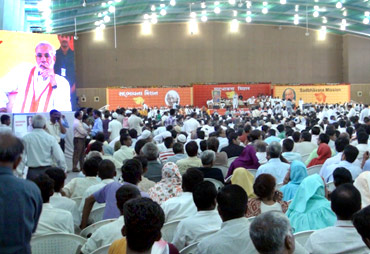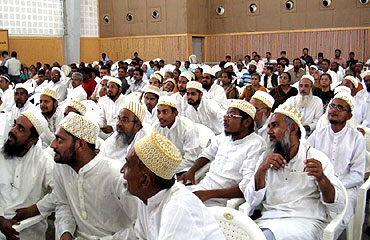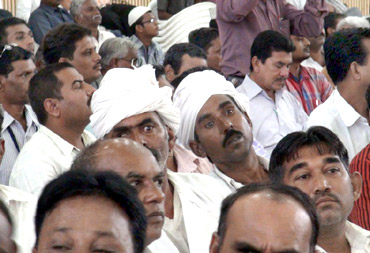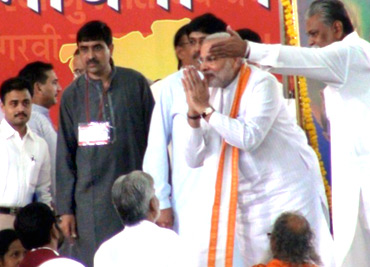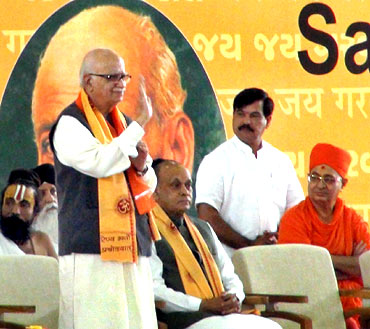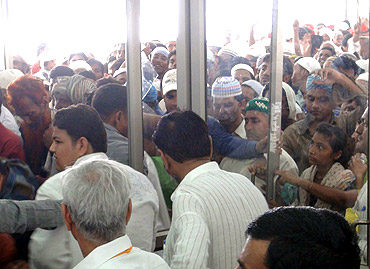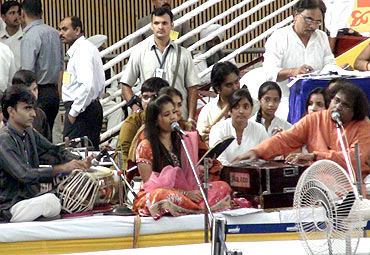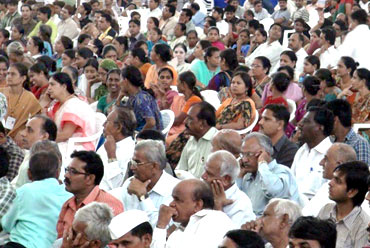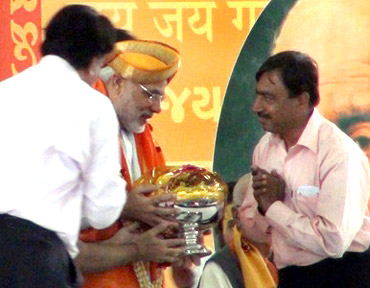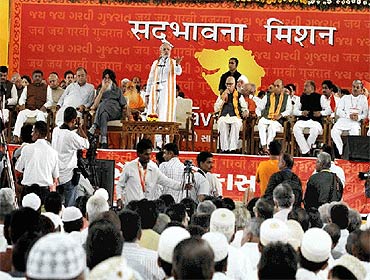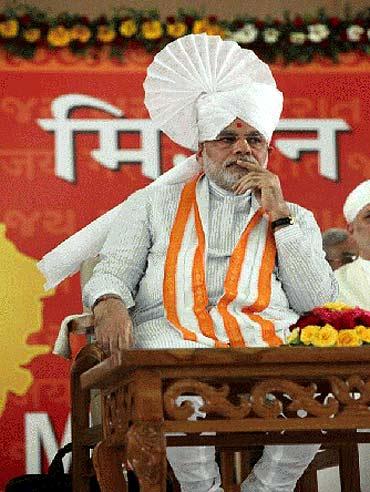 | « Back to article | Print this article |
Fast not against anybody: Modi
Gujarat Chief Minister Narendra Modi on Saturday began his three-day fast for "peace and communal harmony", saying the success of his endeavour would mean an end to vote-bank politics.
He also said that the fast was not against anybody.
'Gujarat wants to move forward'
"We want to take this spirit to each and every village and each and every house. This fast is not against anybody and I don't want to speak about anybody. Gujarat wants to move forward. We want to be in service of India," Modi said.
'Development is our only motto'
"We want to move together and sadhbhavna (harmony) will be our strength. Development is our only motto. We will be a model for the world on how development can be achieved with peace, harmony and brotherhood," the BJP stalwart said.
Speaking about the fast, he said "It was the need of the hour."
'I wanted this message to reach out to people'
"Unity, peace and harmony have a major role to play in our success, our development. Because we have treaded this path and I wanted this message to reach out to people, this fast was the best means to do so," he maintained.
'If I fast, my words will carry more weight'
"Six crore Gujaratis have gone through a lot of penance to ensure such a situation. If I fast, my words would carry more weight and I will be able to reach out to more people." Modi said.
'I have faced every attack'
This was the only objective behind the fast and there was no grudge against anybody, he said.
"Over the last 10 years, we have been vilified. I have faced every attack so that you (people) do not feel the pain. I want to ensure that Gujarat never slips below the parameters of humanity," Modi said.
'May God give me strength'
'Gujarat has scaled new heights'
'Gujarat took 3 years to rebuild'
"Even the World Bank says that if a nation faces disasters like the 2001 earthquake, it would take them at least seven years to rebuild, but the state did this in three years which is a big achievement," said Modi.
'We handled this situation strictly'
"In the very next year, 2002, Gujarat saw gruesome communal riots. This incident once again renewed the discussion that Gujarat has gone back on the path of destruction, but we handled this situation strictly and with strength," the BJP leader said.
"The stones that were thrown on us have been used by us to build a staircase," Modi said.
'Every citizen of Gujarat was left to his own fate'
'Critics kept on throwing stones at us'
'Our path is one of democracy'
'No one acknowledged this peace'
"Even in 2008 after the (serial) blasts (in Ahmedabad), there were no riots or untoward incidents, but no one acknowledged this peace and unity in the time of adversity," Modi said.
He claimed that in 1980s and 1990s, the atmosphere in Gujarat used to be tense and there would be curfew for months together.
'Gujarat has understood the true value of harmony'
Small fights over kite flying or cycling would trigger communal riots, he claimed. Since the last 10 years, there has been no curfew, he said.
This was not because of some preaching or an individual but because of the people of Gujarat, who have understood the true value of harmony, peace and unity, Modi said.
'Gujarat's model of peace will be discussed across the country'
After independence, in the name of secularism, vote-bank politics has taken over, he said. Communalism and casteism has become a tradition for 60 years, Modi stated.
"In such a background, I would like to say that the day is not far when Gujarat's model of peace, unity and harmony would be discussed across the country and the world," Modi said.
